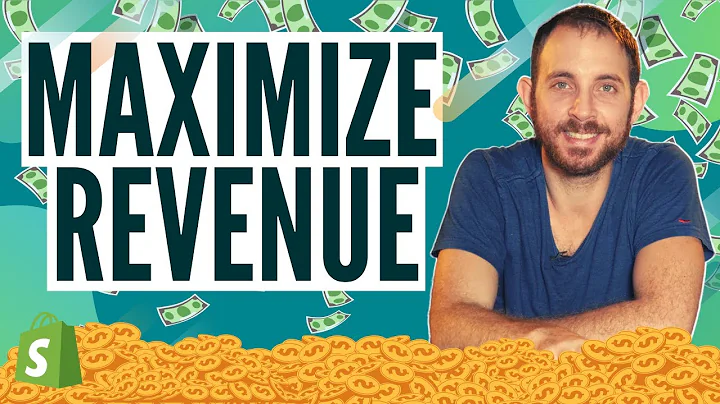How Brands Built Engagement and Relationships During BFCM
Table of Contents:
- Introduction
- The Shift in Black Friday Sales
- Holiday Spending Forecasts
- Positive Outlook for D2C Brands
- Impact of Loyalty Programs
- Increased SMS Marketing
- Emphasis on Customer Reviews
- The Success of Engagement Strategies
- The Importance of Retention
- Conclusion
Article
Introduction
The holiday season is one of the most important periods for brands, with Black Friday being a key event. However, recent data from Yappo suggests that there has been a shift in consumer behavior and spending patterns. While the headlines may paint a negative picture, it is important to look beyond the numbers to understand the full story.
The Shift in Black Friday Sales
Traditionally, Black Friday has been synonymous with massive sales and crowded stores. However, Yappo's data shows that this year, consumers have changed their approach. Instead of making purchases in a single day, they are spreading them out over a longer period of time. This shift can be attributed to various factors, including concerns about shipping delays and the desire for more flexibility in shopping.
Holiday Spending Forecasts
Contrary to the initial impression created by the decline in Black Friday sales, the overall holiday spending is expected to set a new record. Forecasts from the National Retail Federation indicate a potential increase of up to 11.5 percent compared to the previous year. This bodes well for brands, especially those in the direct-to-consumer (D2C) space.
Positive Outlook for D2C Brands
While the headlines may be alarming to some brands, D2C companies have experienced a more positive outcome. Shopify reports that their store owners collectively made $6.3 billion USD in sales globally between Black Friday and Cyber Monday, reflecting a 23 percent increase from the previous year. Yappo's data also shows that D2C brands using their platform have seen higher numbers than ever before.
Impact of Loyalty Programs
One aspect that stands out from the data is the significant impact of loyalty programs. Yappo's data reveals that the number of consumers redeeming points through loyalty programs on Black Friday increased by 300 percent compared to an average day. Points redemption was also higher on Black Friday compared to Cyber Monday. Additionally, loyalty members placed more than 220 percent higher orders than non-loyalty members.
Increased SMS Marketing
Brands have adapted their marketing strategies to cater to the changing consumer behavior. Yappo's data shows that brands sent out more messages leading up to Black Friday, with a 220 percent increase compared to the previous year. This trend continued throughout November, with a 95 percent increase in messages sent during the Black Friday to Cyber Monday period. Additionally, half of all messages sent were personalized, showing a targeted approach to engage customers.
Emphasis on Customer Reviews
Customer reviews play a crucial role in influencing purchasing decisions. Yappo observed a 50 percent increase in calls to their Yatchpaw reviews widget compared to the previous year. This surge in engagement demonstrates the importance of social proof and the impact it has on customer trust and confidence.
The Success of Engagement Strategies
The data clearly indicates that brands have shifted their focus towards building engagement and fostering relationships with customers. This approach has proven to be more effective in growing customer lifetime value compared to traditional blanket discounting. By prioritizing retention, brands that acquired first-time customers during peak holiday shopping times are well-positioned to convert them into loyal customers in the coming years.
The Importance of Retention
While the initial headlines about declining Black Friday sales may be disheartening, it is essential not to overlook the overall success of the e-commerce industry in 2021. The holiday season has been a great year for e-commerce, and the final numbers are yet to be revealed. By employing effective engagement strategies and focusing on retention, brands have the opportunity to capitalize on the changing consumer behavior and continue their growth in the future.
Conclusion
In conclusion, the shift in consumer behavior during the holiday season may have initially seemed alarming, but the data tells a different story. Brands that invested in building engagement and relationships with customers have reaped the benefits. The importance of loyalty programs, personalized SMS marketing, and customer reviews cannot be overstated. By prioritizing retention and focusing on the long-term value of customers, brands have set themselves up for success in the coming years.
Highlights
- Black Friday sales have shifted to a longer period of time, indicating a change in consumer behavior.
- Despite the decline in Black Friday sales, holiday spending is expected to reach a new record.
- Direct-to-consumer (D2C) brands have experienced positive results, with significant growth in sales.
- Loyalty programs have shown to be highly effective in driving customer engagement and increasing orders.
- SMS marketing has increased, with brands sending more personalized messages to engage customers.
- Customer reviews play a crucial role in influencing purchasing decisions and building trust.
- Engagement strategies focused on building relationships have proven to be more effective than blanket discounting.
- Retention is key, and brands have the opportunity to convert first-time customers into loyal ones.
- The e-commerce industry has thrived in 2021, defying initial concerns about declining sales.
- Brands that prioritize engagement and retention are well-positioned for future growth.
FAQ
Q: Why have Black Friday sales declined?
A: Black Friday sales have shifted to a longer period of time, with consumers spreading out their purchases. This can be attributed to factors such as concerns about shipping delays and the desire for flexibility in shopping.
Q: Are overall holiday spending numbers expected to be low?
A: No, forecasts indicate that holiday spending is likely to set a new record, with an expected increase of up to 11.5 percent compared to the previous year.
Q: How have D2C brands performed during the holiday season?
A: D2C brands have experienced positive results, with significant growth in sales. Shopify store owners collectively made $6.3 billion USD during the Black Friday to Cyber Monday period, reflecting a 23 percent increase from the previous year.
Q: How effective are loyalty programs in driving customer engagement?
A: Loyalty programs have shown to be highly effective, with a significant increase in points redemption and higher order volumes from loyalty members compared to non-loyalty members.
Q: What marketing strategies have brands employed during the holiday season?
A: Brands have increased their SMS marketing efforts, sending more personalized messages to engage customers. They have also emphasized the importance of customer reviews in influencing purchasing decisions.
Q: Why is building customer engagement important?
A: Building customer engagement and fostering relationships has proven to be more effective in growing customer lifetime value compared to traditional blanket discounting. By focusing on retention, brands can turn first-time customers into loyal ones and drive future growth.


















